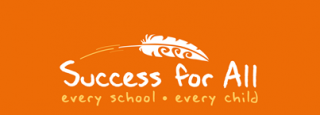
The IEP process reflects the vision, policy, and principles of both Te Marautanga o Aotearoa and The New Zealand Curriculum.
Teaching and learning for all students in New Zealand schools – including those with special education needs – is centred in Te Marautanga o Aotearoa and The New Zealand Curriculum.
Inclusive education means all children and young people are engaged and achieve through being present, participating, learning, and belonging.
Provides New Zealand educators with practical strategies, suggestions, and resources to support learners with diverse needs.
Twenty-nine guides cover a range of topics, such as Supporting akonga Māori, Technology tools for learning, and Collaborative planning for learning.
The search tool allows you to sort guides A to Z, New, or Popular.
In 2010, the Ministry of Education commissioned a review of the national and international literature around IEPs to inform their future use.
The study concluded the following.
Success for All – Every School, Every Child (2010) (PDF, 1.1MB) –sets out the government’s vision of a fully inclusive education system
Confident schools, students, parents/caregivers, whānau, and communities are at the heart of this vision.

The National Administration Guidelines (NAGs) provide the policy framework for IEPs, and the principles that inform IEP processes apply to all teaching and learning.